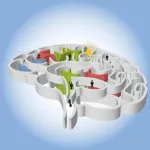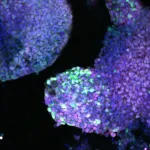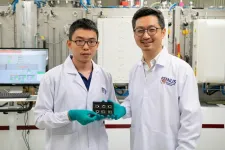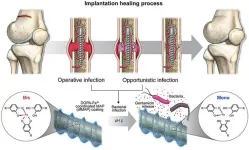(Press-News.org) With advances in neuroscience and the development of new technologies, new ethical considerations have emerged. This is particularly true for human brain organoids, which are three-dimensional tissues grown from stem cells that partially replicate the characteristics of the human brain. Brain organoids have emerged as important tools for studying brain development and disease, but there are concerns about the possibility of these organoids developing consciousness. This has important implications for research ethics and the need to obtain informed consent from cell donors.
To address these questions, an international team of researchers has sought to shed light on the intricate ethical landscape of brain organoid research, offering insights that will be important for researchers, ethicists, and policymakers alike. Through a comprehensive literature review and ethical analysis, they examined how the potential for consciousness in brain organoids complicates the process of obtaining informed consent from cell donors. Their study revealed uncertainties in two key aspects: the scientific understanding of consciousness in brain organoids and the moral implications of brain organoid consciousness. These uncertainties pose significant challenges for respecting donor autonomy and determining the scope of consent in human brain organoid research.
To clear these uncertainties, the researchers proposed three tentative methods for obtaining consent from donors. First, to address donor concerns and uncertainties, they advocated for project-specific consent procedures by explicitly informing cell donors that their cells will be used in brain organoid research. Second, they emphasized the importance of incorporating the abovementioned uncertainties into consent procedures by providing donors with comprehensive information about the potential for brain organoid consciousness and measures implemented to address this. Finally, they proposed the development of a risk framework for brain organoid research to guide ethical considerations and minimize potential harm.
The researchers note that some scientists may believe that such concerns are unwarranted, at least at the current stage. However, they argue that if the goal of human brain organoid research is to contribute to the advancement of science and medicine, and ultimately society as a whole, it is important to conduct research that earns public trust.
Says Dr. Sawai “Ignoring these aspects may lead to short-term success, but it's unlikely to be sustainable in the long term. Our findings can be considered foundational research that solidifies the ethical groundwork essential for the progression of scientific and medical research.”
The findings of this study have far-reaching implications for the fields of neuroscience and research ethics, especially in terms of how future studies obtain informed consent from cell donors. As brain organoid research progresses, it is imperative to navigate these ethical complexities, particularly those regarding potential consciousness, with diligence and foresight. By tailoring informed consent procedures and prioritizing ethical oversight, scientists can uphold the principles of autonomy while advancing our understanding of the brain. This study serves as a call to action for researchers, ethicists, and policymakers to engage in thoughtful discourse and decision-making regarding brain organoid research. By confronting these ethical challenges head-on, scientists can ensure that the quest to understand the brain is guided by ethical principles.
Writing: ThinkSCIENCE, Inc. (Tokyo, Japan)
END
Proposals for cell donation procedures to create brain organoids
2024-03-05
ELSE PRESS RELEASES FROM THIS DATE:
Turning skin cells into limb cells sets the stage for regenerative therapy
2024-03-05
Fukuoka, Japan – In a collaborative study, researchers from Kyushu University and Harvard Medical School have identified proteins that can turn or “reprogram” fibroblasts — the most commonly found cells in skin and connective tissue — into cells with similar properties to limb progenitor cells. Publishing in Developmental Cell, the researchers’ findings have enhanced our understanding of limb development and have set the stage for regenerative therapy in the future.
Globally, close to 60 ...
NUS researchers invent new triple-junction tandem solar cells with world-record efficiency
2024-03-05
Scientists from the National University of Singapore (NUS) have developed a novel triple-junction perovskite/Si tandem solar cell that can achieve a certified world-record power conversion efficiency of 27.1 per cent across a solar energy absorption area of 1 sq cm, representing the best-performing triple-junction perovskite/Si tandem solar cell thus far. To achieve this, the team engineered a new cyanate-integrated perovskite solar cell that is stable and energy efficient.
Solar cells can be fabricated ...
Quantum computing will radically alter the application of copyright law, study says
2024-03-05
Quantum computing will radically transform the application of the law – challenging long-held notions of copyright, a new study says.
Faster computing will bring exponentially greater possibilities in the tracking and tracing of the legal owners of art, music, culture and books.
This is likely to mean more copyright infringements, but also make it easier for lawyers to clamp down on lawbreaking. However, faster computers will also be able to potentially break and get around certain older enforcement technologies.
The research says quantum computing ...
Ochsner Health & Wellness Day in New Orleans East set for March 9
2024-03-05
NEW ORLEANS – Today, Ochsner Health announced that the annual Health and Wellness Day in New Orleans East will be held from 9 a.m.- 1 p.m. on Saturday, March 9 at the Joe W. Brown Rec Center.
“At Ochsner Health, our vision is to inspire healthier lives and stronger communities, and neighborhood engagement is a fundamental component of that effort,” said Yvens Laborde, MD, chief community medical officer. “Health and Wellness Day meets New Orleans East families where they live. With our partners, ...
Protecting joints from bacteria with mussels
2024-03-05
Degenerative arthritis is no longer exclusive to the elderly population. According to the National Health Insurance Service report covering the years from 2012 to 2022, there has been a 22.8% increase in the prevalence of degenerative arthritis among people in their 20s and 30s. This rise is attributed to prolonged periods of desk sitting and the excessive lifting of heavy sports equipment, both of which can lead to significant cartilage damage. While artificial joints are a common treatment, bacterial infections have posed challenges. However, ...
Researchers investigate immune response of a man who received 217 Covid vaccinations
2024-03-05
Researchers at Friedrich-Alexander-Universität Erlangen-Nürnberg (FAU) and Universitätsklinikum Erlangen have examined a man who has received more than 200 vaccinations against Covid-19. They learned of his case via newspaper reports. Until now, it has been unclear what effects hypervaccination such as this would have on the immune system. Some scientists were of the opinion that immune cells would become less effective after becoming used to the antigens. This proved not to be the case in the individual in question: his immune system is fully functional. Certain immune cells and antibodies against SARS-CoV-2 are even ...
Proceed with caution – the meteoric rise of zero-alcohol drinks
2024-03-05
New research from Flinders University has revealed that parents are feeling conflicted, confused and concerned when it comes to zero-alcohol beer, wine and spirts and adolescents.
In recent years alcohol-free alternatives have flooded the Australian drinks market, reaching into the millions of dollars and heralding a new - but ever more confusing - era for parents across the country.
With such a meteoric rise in choice and popularity, the rules, regulations and wider implications of these drinks for adolescents are still being studied.
Non-alcoholic beer, wine, and spirits, sometimes known as ...
USC collaborates with startup supporter Techstars to encourage intellectual property development
2024-03-05
USC will spark new startups and innovation under a new collaboration with Techstars, a leading pre-seed investor.
The collaboration is also promising for the local economy as ideas generated at USC are converted into products and businesses that will enhance the university’s economic footprint at “Silicon Beach.” The budding tech corridor spans Los Angeles County and portions of Orange County, and it hosts several tech and biotech industry leaders, including the USC Information Sciences Institute in Marina del Rey and the USC Institute for Creative Technologies in Los Angeles.
“Our mission is to ...
Who military service members see as credible to discuss secure firearm storage for suicide prevention
2024-03-05
Secure firearm storage—storing a firearm unloaded, locked and separate from ammunition—can help reduce the risk for suicide, but many military service members store their firearms unsecured.
In a new Rutgers Health study, researchers asked firearm-owning service members who they view as the most credible sources to discuss secure firearm storage for suicide prevention.
The researchers, whose study appears in the journal Suicide and Life-Threatening Behaviors, examined data from 719 U.S. service members.
“There is no single voice that will appeal to all firearm-owning service members, but certain groups are widely seen as credible overall and our results ...
Low birthweight coupled with overweight in 20s linked with ‘massive risk’ of early type 2 diabetes in men
2024-03-05
*This is an early press release from the European Congress on Obesity (ECO 2024) Venice 12-15 May. Please mention both the Congress and the journal Diabetologia if using this material*
New research being presented at this year’s European Congress on Obesity (ECO) in Venice, Italy (12-15 May), and published in Diabetologia (the journal of th European Association for The Study of Diabetes [EASD]) suggests that having a low birthweight together with being overweight in young adulthood (but not childhood) contributes to the development of type 2 diabetes at an early age (59 years or younger) in men.
Notably, the study involving over 34,000 ...






